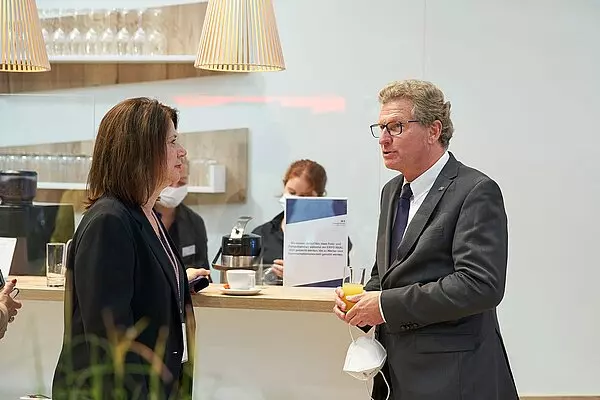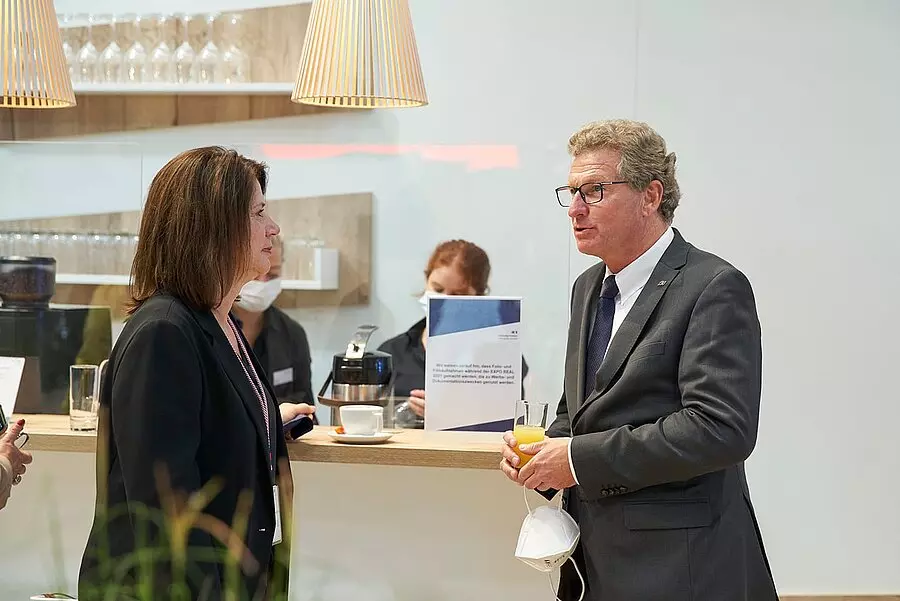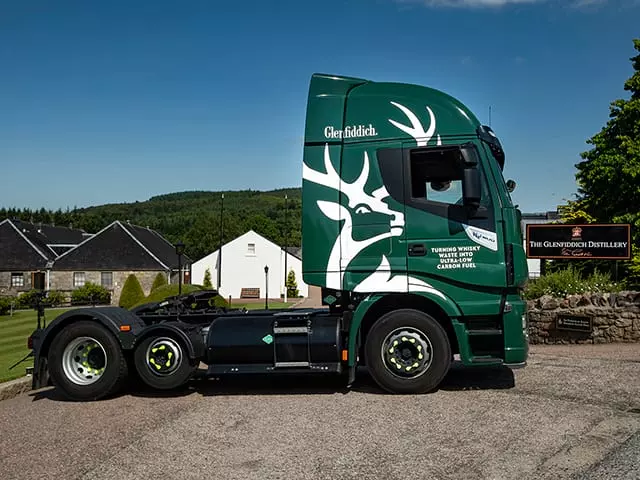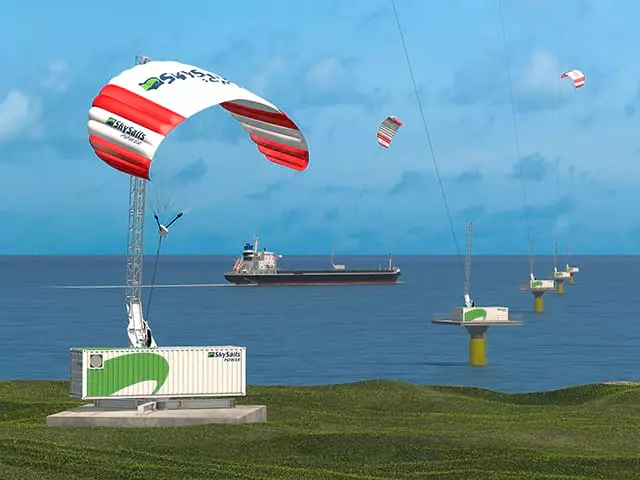Tell me...
What are you doing?
The other day at a fair - I'm on my way to the Energy Coast stand. A stately gentleman is standing there, flirting with our delicious organic muesli bars. As I approach, I recognise him: Dr Bernd Buchholz, our multi-department Minister for Economics, Transport, Labour, Technology and Tourism. He must have an appetite, maybe he would like something else. "Moin, Dr Buchholz, what are you doing?"
I’m enjoying the benefits of the Energy Coast
Minister of Economics, Transport, Labour, Technology and Tourism
I'm enjoying the benefits of the Energy Coast, he says, quickly clearing away some empty bar wrappers. "Hello, Mrs Voss, all morning I have been rushing from one conversation to another. The coalition agreement of the parties in Berlin is a departure to a new climate policy that will also give Schleswig-Holstein a proper push in terms of renewable energies - unfortunately I haven't had time to eat anything yet." Typical Dr Buchholz, always committed to the energy transition business location number 1 in Germany. "Yes, to decarbonise heating, transport and industry, significantly higher amounts of green electricity will be needed," I say, pointing to our catering. "Time for lunch?"
On the Energy Coast, we're leading the way,
says Dr Buchholz. "As a pioneer region, we have been producing immense amounts of green electricity here for a long time with a wide variety of technologies. The Energy Coast offers ideal conditions for innovative sustainable new settlements and future-oriented industries." "So what's the latest on the HyPLANT100 H2 project in Heide?" This mammoth project is of burning interest to me. Dr Buchholz: "A 30 MW plant is currently being built in Heide as an electrolyser, with an expansion stage of 200 MW to 2000 MW."
Wow! Another masterpiece by the hydrogen pioneers on the Energy Coast!
Such a plant is unique in the world!
You can see Dr Buchholz's enthusiasm for a 100% renewable future. "Mrs. Voss, in the final stage of construction we should be able to run Hamburg Airport's flight operations, for example, on synthetic kerosene methanised from hydrogen." Now I'm speechless for a moment. "And think of Helgoland," he continues. "As a hub for offshore wind energy, Helgoland is prototypical for trying something new with hydrogen." "Yes, converting the electricity from the wind turbine directly into H2 and then delivering it via pipeline to the mainland," I say. "Exactly! These are projects with European significance that are taking place here in our north," says a pleased Dr Buchholz.
On the Energy Coast, we're leading the way
Minister of Economics, Transport, Labour, Technology and Tourism
The energy transition must be thought of in a networked way.
Now the most prominent promoter of the Energy Coast, as I quietly call him, is completely in his element: "This is where the special strength of this region lies, because all aspects of an integrated system are already being developed. Companies and municipalities are already making future technologies and sector coupling a reality in many projects. We are in an international competition of regions for companies, employees, scientists and investments. It is all the more important that we join forces."
Speaking of large-scale H2 projects, research and forces
"How is actually the recruitment and securing of skilled workers on the West Coast developing?", I ask. Dr Buchholz: "We have a lot of high-quality jobs on the Energy Coast and there will be many more in the near future. Increasingly, young people are moving here who no longer need to live in metropolises because they can live anywhere with mobile working. I can't go kiting in the afternoon in Mannheim or Hamburg. But I can do that on the Energy Coast.
We have the happiest people,
because both life and work have a lot to offer here." Dr Buchholz puts his plate aside. I nod, "I can confirm that with full conviction." He says goodbye and hurries away, continuing his commitment to Germany's most beautiful and exciting region. Goodbye and thank you very much for the interview.









